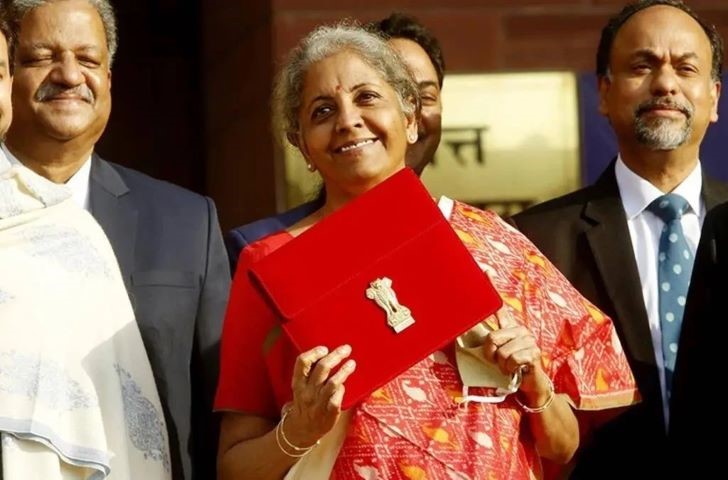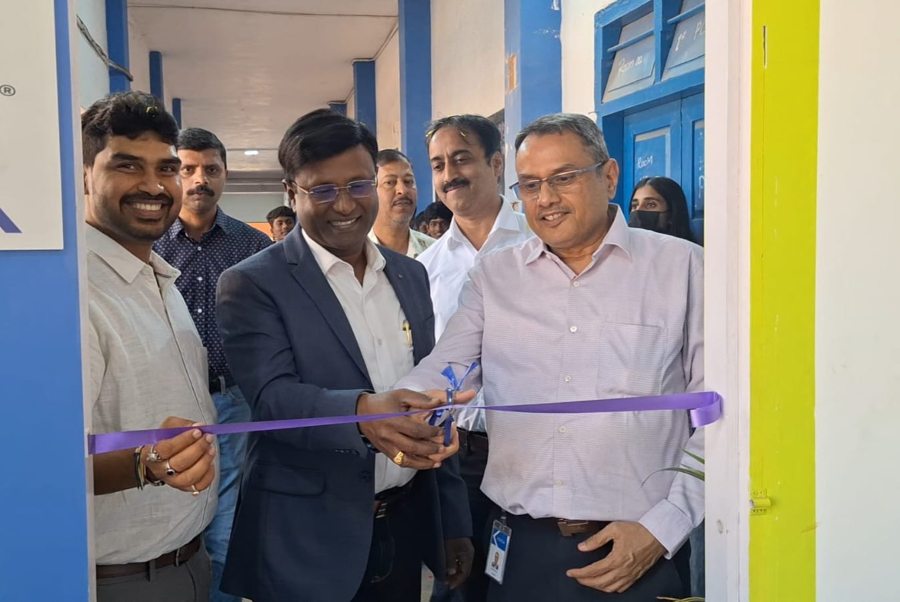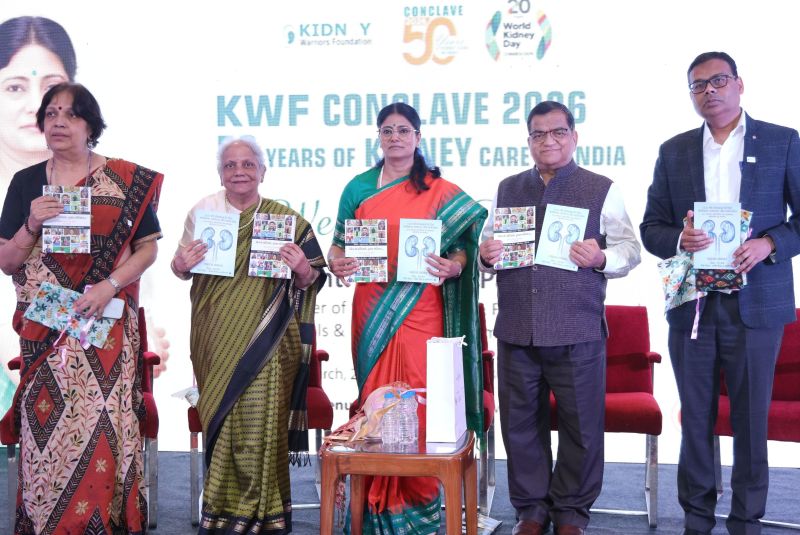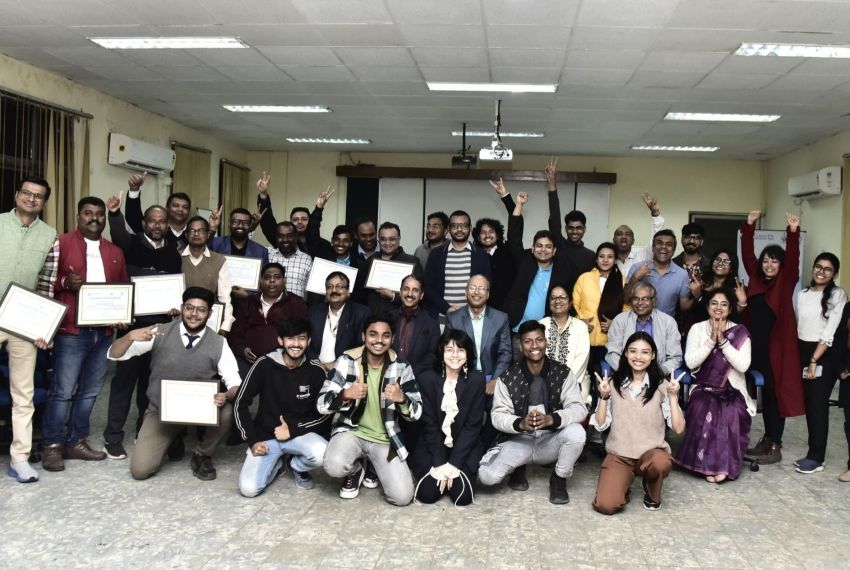New Delhi, February 3, 2023: With the allocation of Rs 35,000 crore to achieve energy transition and net zero emissions, Finance Minister Nirmala Sitharaman has launched "Green Credit Programme" in her Union Budget 2023-24. 'Green growth' has emerged as one of the top seven priorities for India in the budget.
The green credit programme is aimed at encouraging behavioural change and will be notified under the Environmental Protection Act. This will boost environmentally sustainable and responsive actions by companies, local bodies and individuals.
"I congratulate our Finance Minister Smt. Nirmala Sitharaman for presenting such a pragmatic Union Budget 2023. This budget focused on all the major areas and Green Growth was among them. The budget focused on replacing old polluting vehicles, allocating Rs 35,000 crores towards achieving zero goal and energy transition, reduced dependency on imports of batteries and other raw materials and making a green economy. It will help us taking our nation towards the circular economy that will further reduce carbon intensity and create green jobs," said Apoorv Chaturvedi, Founder, Eco Green Recycling Pvt. Ltd.
With a slew of measures like rapidly adopting EVs, the announcement of Green Hydrogen Mission and the approval and issuance of sovereign green bonds, India is already on the path of achieving its net-zero emission targets by 2070.
The FM further appreciated the vision of the Prime Minister for “LiFE” or Lifestyle for Environment to encourage a movement of an environmentally conscious lifestyle. “India is moving forward firmly for the ‘panchamrit’ and net-zero carbon emission by 2070 to usher in green industrial and economic transition. This Budget builds on our focus on green growth," she said.
Commenting on the budget, Anand Srinivasan, Managing Director, Covestro said, "The Union Budget 2023 has taken a significant step towards green growth with its focus on green hydrogen, clean energy storage and transmission. This is a welcome move that will help India transition to a low-carbon economy and reduce its carbon footprint. We at Covestro India, are committed to supporting the Government in its efforts to promote green growth and are looking forward to working collaboratively with all stakeholders to develop innovative solutions for a sustainable future."
In her budget speech, Nirmala Sitharaman further stated that a programme named "PM Programme for Restoration, Awareness, Nourishment and Amelioration of Mother Earth” (PM-Pranam) will also be introduced, the aim of which would be to encourage states and UTs to promote alternative fertilizers and balanced use of chemical fertilizers. This would include promoting natural farming as well. For this, the government plans to facilitate over 1 crore farmers towards natural farming (chemical/pesticides/fertilizers-free). To achieve this, 10,000 Bio-input Resource Centres will be set up across the country which will create a national level distributed micro fertilizer and pesticide manufacturing network.
The government will also focus on conserving coastal ecosystem through ‘Mangrove Initiative for Shoreline Habitats & Tangible Incomes’ (MISHTI). The scheme will encourage optimal use of wetlands, promoting circular economy through 500 new ‘waste to wealth’ plants under GOBARdhan (Galvanizing Organic Bio-Agro Resources Dhan) scheme. The MISHTI initiative aims at mangrove plantations along the coastline and on salt pan lands in cooperation with MGNREGS, CAMPA fund and other sources.
As per Action Aid, “The initiative of green growth and transition to net-zero carbon and several focused proposals are welcome steps. These include the National Green Hydrogen Mission, capital investments towards net-zero, and MISHTI – the Mangrove Initiative and Amrit Dharovar. Under the latter, recognising local communities as frontline ecological defenders is worth celebrating. Similarly, the initiative to promote millets in the food security programme and providing input support through GOBARdhan and PM-PRANAM is a welcome first step.”
With an investment of Rs 20,700 crore, out of which the central government will contribute Rs 8,300 crore, an interstate transmission system for evacuation and grid integration of 13 GW renewable energy from Ladakh will also be constructed.
What is 'Green Credit Programme'?
The main aim of the ‘Green Credit Programme’ is to incentivise individuals, companies, and local bodies to adhere to sustainable practises under the Environment (Protection) Act and help mobilize additional resources for such activities. Basically, the scheme aims to drive climate-conscious action from one and all that can result in reducing carbon footprints collectively.
What’s been happening so far?
It’s not only the budget that focuses on environmental sustainability, India has been prompt enough to respond to the needs to the climate change crisis for quite some time now. Earlier, the National Green Hydrogen Mission (NGHM) got the union cabinet’s approval which will pave the path for India to become a global hub for production, utilization and export of green hydrogen and its derivatives along with creating 6 lakh jobs.
The mission aims at producing 5 MMT of green hydrogen per annum with an associated renewable energy capacity addition of about 125 GW. With this, around 50 MMT per annum of CO2 emissions are expected to be averted by 2030.
It’s not only the government, but the private sector and corporates have also been contributing towards this national agenda. L&T, Indian Oil Corporation, Adani Enterprises Limited, GAIL, NTPC, ReNew Power, Ballard Power, Ashok Leyland, Reliance, Hindustan Zinc, etc are a few private sector companies and PSUs that have launched various initiatives to make India a hub for the production of green energy.
Besides this, the RBI has launched and issued its maiden sovereign green bonds recently. The aim of this initiative is again to utilize the funds in promoting green and environmental friendly projects.
You may also like to read:
HCL Group announces USD 1.9 million for 10 entrepreneurs including India’s Indra Water to tackle global freshwater crisis
“People and the planet are at the heart of all our health interventions”: Upasana Kamineni Konidela, Vice Chairperson, CSR, Apollo Hospitals
CSR in India: From 'Good CSR' to 'Effective CSR' through Convergence









.jpg)














